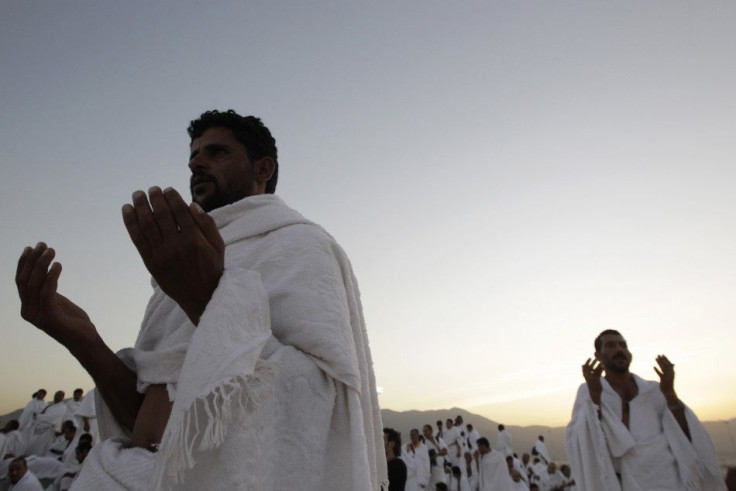India's Hajj Subsidy Program To Be Cut Following Supreme Court Ruling

India's Supreme Court directed the central government Tuesday to slowly phase out its Hajj subsidy program, which partially covers travel costs for Indian Muslims' sacred pilgrimages to Mecca, the Islamic holy site in Saudi Arabia.
We hold that the policy is best done away with and it should be eliminated over 10 years, said Justice Atlamas Kabir, according to Agence France-Presse.
The government now spends billions of rupees in subsidies for Hajj pilgrims annually. Recently, more than 120,000 travelers have used the subsidy each year. Many more apply, but priority is given to older and first-time pilgrims. The government subsidizes a state-run airline, Air India, which then offers travel fare to and from Saudi Arabia at about half the typical price.
Now, the program is expected to be scrapped by 2022.
The court also ordered the government to immediately cut down on its annual goodwill delegation to Mecca, which helps pave the way for Indian pilgrims and encourages a harmonious relationship with Saudi Arabia.
As Indian government counsel Harish Beran explained to Asian News International, On the issue of goodwill delegation, although we have said that last year there were around 30 people. ... We have substantially reduced it to nine plus one this year. The court has said that instead of nine it has to be only two people.
The Hajj subsidy issue was first taken up by the Supreme Court after the government appealed a Bombay High Court decision, which had addressed the role of private carriers in transporting subsidized Hajj pilgrims.
The Hajj is considered a sacred pilgrimage and is one of the five pillars of Islam. All Muslims are required make the journey to Mecca at least once in their lives, if they are able to do so.
The pilgrimage is meant to unify travelers by stripping away the divisions between them, at least temporarily. All pilgrims are encouraged to bring only the necessary provisions and wear simple garments to complete the journey.
The ultimate destination is a small, cube-shaped building referred to as the Kaaba, which sits inside of a large open-air mosque called the Masjid al-Haram. Devout Muslims all over the world bow toward this building while performing their five daily prayers.
India, though majority Hindu, has one of the largest Muslim populations on Earth. With more than 177 million adherents to Islam, according to a 2010 study by the Pew Research Center, India's Muslim population is outranked only by Indonesia and Pakistan.
But there is a history of tension between Indian Muslims, who constitute about 15 percent of the population, and Hindus, who make up about 80 percent. Islamic communities in India generally deal with higher levels of poverty, lower rates of literacy and lower life expectancies than others.
Muslims are also under-represented in Lok Sabha, India's parliament, where they occupy only 28 of the 543 seats (5 percent).
The inequity can beget conflict. The worst instance of religious violence in recent memory erupted between Muslims and Hindus a decade ago, in the state of Gujarat. A train there was attacked by an Islamic group, killing 60 Hindu pilgrims and prompting widespread retaliation. In the end, more than 1,000 people, most of them Muslims, lost their lives. Though the violence has ended, the conflict is far from resolved; perpetrators of crimes on both sides continue to be investigated and tried in court over a decade later.
The tensions are not helped by the perennially prickly relationship between India and Muslim Pakistan. Hostilities were renewed after the 2008 terrorist attacks in Mumbai, which killed 166 people and were allegedly masterminded by Pakistani Islamist radical Hafiz Saeed.
Whether this tension will be exacerbated by the Supreme Court's decision to discontinue Hajj subsidies remains to be seen. Initial reports from Indian media suggest that some Muslim authorities are in fact pleased by the decision.
We welcome this ruling. If people from other religions don't get subsidies for pilgrimages, why should we? We all are equal citizens of the country, said Mukarram Ahmed, a New Delhi imam, to IANS.
He added that the subsidy had flouted the rules of the sacred pilgrimage. A Hajj is undertaken only if you have the money, are in good health and have performed all your duties towards your family. Going on a Hajj with money you borrowed from someone is absolutely prohibited. The withdrawal of [the] subsidy won't have any effect on us and we have no objection.
Others argued that the subsidy program was corrupt and ineffective in the first place, according to the Times of India.
But not everyone approved of the decision. Shia cleric Kalbe Jawwad said that he disagreed with the ruling, arguing that its effects would be felt by India's poorest Muslims, and that it was not within [the court's] rights to make laws.
© Copyright IBTimes 2024. All rights reserved.












